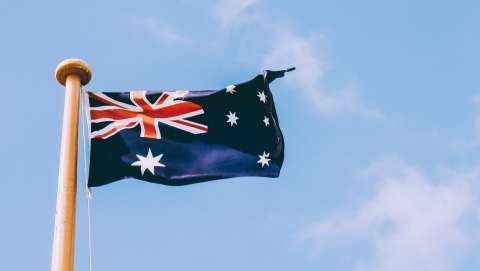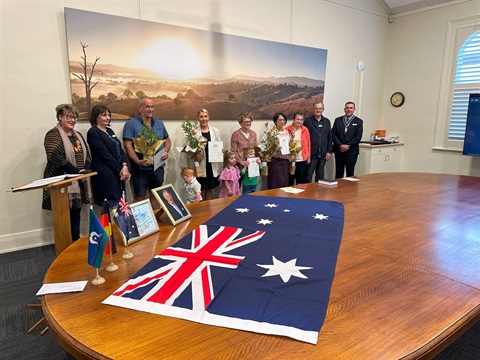Latest #BeeWell data presents a much-needed good news story for young people’s mental health and wellbeing
Young people in Greater Manchester are reporting an improvement in hope and optimism for their future, marking what many will consider a welcome return to pre-pandemic levels.
However, the results from the latest #BeeWell survey, which heard from over 38,000 young people aged 12-15 years in more than 250 schools across Greater Manchester, Hampshire, Isle of Wight, Portsmouth and Southampton, also revealed noteworthy and consistent inequalities in wellbeing across gender and sexuality.
Focusing on time trends in the Greater Manchester survey data, 83% of young people felt hopeful and optimistic about their future in 2023, compared to just 72% of young people during the height of the COVID-19 pandemic in 2020.
The #BeeWell programme, co-founded by The University of Manchester, The Gregson Family Foundation and Anna Freud, and developed in partnership with the Greater Manchester Combined Authority, has been listening to the voices of young people since 2021, and seeks to make the wellbeing of young people everybody’s business. To date, the #BeeWell survey has been completed by more than 85,000 young people.
The founders behind the survey results hail young people’s improvements in optimism in Greater Manchester.
Wellbeing inequalities: LGBTQ+ young people report lowest life satisfaction
Overall, this year’s #BeeWell survey results, which analysed data on young people from across all 14 Local Authorities in Greater Manchester, Hampshire, Isle of Wight, Portsmouth and Southampton, found that young people are generally satisfied with their lives. However, there are noteworthy inequalities in life satisfaction, mental wellbeing and emotional difficulties across gender and sexuality.
- 41.2% of young people who identify as lesbian or gay reported a high level of emotional difficulties (e.g. worrying a lot, feeling unhappy, having problems sleeping). This figure rose to 44.5% for young people who identify as bisexual or pansexual. This is compared to 12.1% of heterosexual young people. High scores in this area could indicate that young people may require additional, preventative support
- When considering gender differences, 22% of cisgender girls reported a high level of emotional difficulties compared with 6% of cisgender boys. The proportion reporting high levels of emotional difficulties rose to 33.9% for transgender and gender diverse young people and 21% for those questioning their gender
- These inequalities are also seen in life satisfaction and mental wellbeing scores, with gay and lesbian young people experiencing the lowest wellbeing and reporting that they are least satisfied with their lives, followed closely by bisexual and pansexual young people, and those who identify as transgender and gender-diverse
Building on the results, the #BeeWell programme is working with schools, partners and the wider community to act on these and other findings in the data. This has included an exciting collaboration with The Duke of Edinburgh’s Award which is working to deliver the scheme for young people in those neighbourhoods identified as having the lowest wellbeing.
“The Duke of Edinburgh’s Award brings young people together and enables them to discover new passions, gain new skills and connect with their community – however, opportunities for personal development and enrichment, which we know help boost confidence, give people hope and drive success, aren’t always accessible to everyone – we’re working hard to change that,” said said Ruth Marvel, CEO of The Duke of Edinburgh’s Award.
“Using insights from #BeeWell, over the last 18 months, we’ve licensed eight new organisations in Greater Manchester, offering the DofE to some of the country’s most marginalised communities. Looking ahead, we’re excited to widen access to the DofE further, as we identify areas in Hampshire, the Isle of Wight, Portsmouth and Southampton. Through this work, we hope to give young people the positive experiences, skills and capabilities they need to succeed in the future, which in turn, will boost wellbeing and optimism and that’s something we all so want to see.”
“It is great to see hope and optimism is improving for our young people – however, it is disappointing to see that the inequalities, particularly in regard to gender, are still so stark when it comes to life satisfaction and wellbeing,” said Professor Jess Deighton, Director of Innovation Evaluation and Dissemination at Anna Freud. “It is great to see hope and optimism is improving for our young people. However, it is disappointing to see that the inequalities, particularly in regard to gender, are still so stark when it comes to life satisfaction and wellbeing. We now need to work together to target these groups, understand what they need and start making the impact that is required to enable these young people to be heard and for their wellbeing to be improved.”
“The findings from the #BeeWell survey provide us with an invaluable insight into the needs and aspirations of young people,” said Anthony Harper, Deputy Director for Children’s Care at the NHS Hampshire and Isle of Wight Integrated Care Board. “It will support us in our drive to ensure early identification and support is available to children and young people where and when they most need it.”
“I am a firm believer in the importance of expanding the voices of young people in our society and giving solutions to the challenges we face,” said Uyuhansi Fernando, North East Councillor, Hampshire Youth Parliament. “All young people should have equal access to opportunities that help their wellbeing. I am confident that by listening to the voices of young people through #BeeWell, we can have a better understanding of the modern world ahead of us.”
#BeeWell Neighbourhood Data Hive
Following the release of the headline findings from the #BeeWell survey, an interactive public dashboard will show more detailed results and insights into young people’s wellbeing across 64 different neighbourhoods in Greater Manchester and 46 different neighbourhoods in Hampshire, Isle of Wight, Portsmouth and Southampton. This will be published online at the end of March 2024, with a view to inspiring action across local government and civil society.
Read our full report here: #BeeWell Headline Findings 2023 Report.








